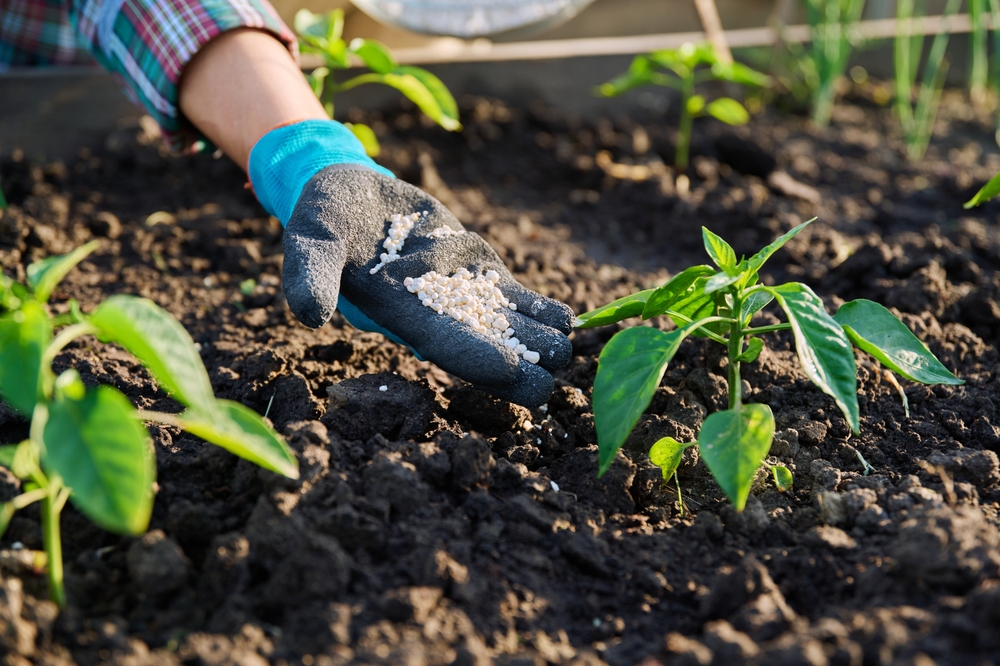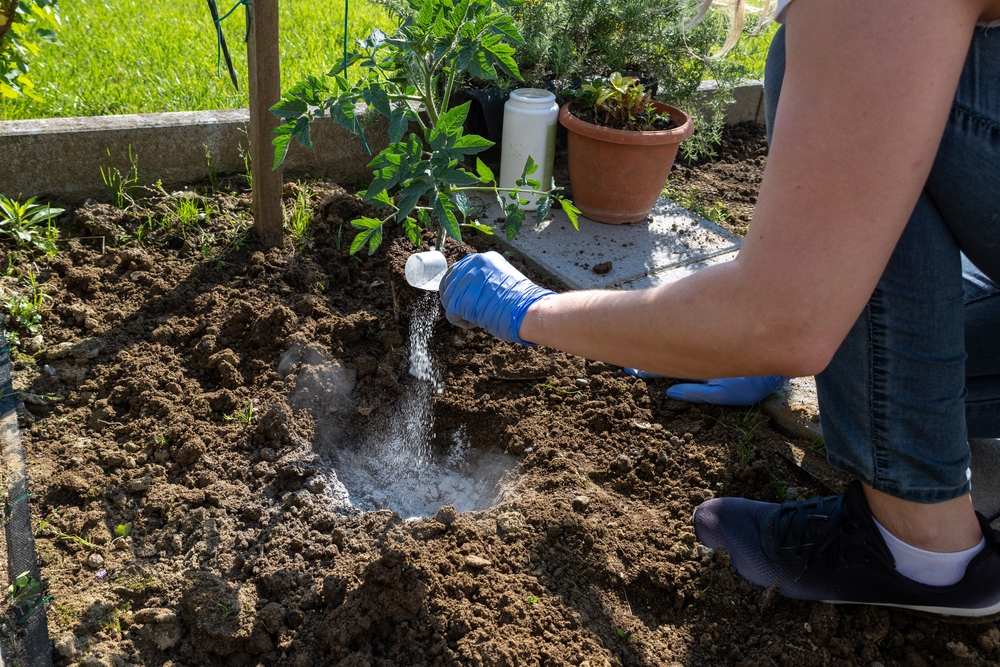
Image Source: Shutterstock.com
When the weather cools and the soil turns a little stubborn, most gardeners assume the growing season is over. But here’s a little secret: your plants don’t have to hibernate just because the thermometer dips. The trick? Feeding your garden with the right organic fertilizers that thrive even when the ground feels more like a refrigerator than a sunbaked sandbox.
These cool-weather champs keep roots active, microbes alive, and nutrients flowing—so your plants can stay strong when most gardens call it quits. Grab your gloves, because we’re about to dig into nine organic fertilizers that actually like the cold.
1. Fish Emulsion: The Cold-Weather Powerhouse
Fish emulsion has been a gardener’s secret weapon for decades, and it’s especially handy in chilly conditions. This liquid fertilizer is full of nitrogen and trace minerals that absorb easily, even when soil microbes slow down in the cold. Because it’s already in liquid form, plants don’t have to wait for decomposition to kick in. It works fast, giving struggling roots an instant energy boost. Bonus: your garden gets that earthy, ocean-side scent that says, “something’s growing here.”
2. Compost: The Year-Round All-Star
If gardening had an MVP, compost would take home the trophy every time. Even in cooler soil, compost continues to feed the ecosystem by enriching microbial life and improving texture. It’s slow and steady—decomposing gradually while releasing nutrients over time, no matter the season. In cold soil, compost acts as both fertilizer and insulation, keeping roots protected from sudden temperature swings. Think of it as a cozy blanket that also happens to feed your plants breakfast.
3. Bone Meal: Root Strength in Every Scoop
When soil temperatures drop, plant roots work overtime to absorb nutrients. Bone meal, packed with phosphorus and calcium, gives them the reinforcement they need. It’s perfect for cool-weather crops like garlic, onions, and carrots, which depend on strong root systems to thrive. Because it releases nutrients slowly, it won’t wash away easily with cold rain or snowmelt. Mix it into your soil before planting, and you’ll have a root network built to last the season.
4. Blood Meal: A Natural Nitrogen Boost
Blood meal may sound like a Halloween prop, but it’s actually a nitrogen-rich organic fertilizer that wakes up sluggish soil. Cool conditions often slow nitrogen cycling, and blood meal helps make up the difference. It feeds leafy greens and other nitrogen-hungry plants that might otherwise fade in the chill. Plus, it deters some garden pests with its strong scent—a double win for cold-season gardeners. Use it sparingly though; a little goes a long way in reviving your plants’ color and vigor.
5. Seaweed Extract: Nature’s Oceanic Multivitamin
Seaweed extract is like a vitamin smoothie for plants—packed with potassium, magnesium, and growth hormones that promote resilience. Its liquid form means it stays effective even in colder soil where other fertilizers stall out. Seaweed also improves root development, helping plants absorb nutrients despite the chill. The trace minerals encourage better resistance to frost and cold stress. It’s one of the most sustainable fertilizers out there, making your garden both strong and eco-friendly.
6. Worm Castings: Small Creatures, Big Impact
Worm castings (a fancy term for worm poop) are like black gold in the garden. These tiny nuggets are loaded with nutrients that stay bioavailable, even in cool conditions. Unlike chemical fertilizers, castings won’t burn plants or shock cold soil. They release their nutrients slowly and steadily, providing consistent nourishment throughout early spring or late fall. Plus, they help improve soil structure, keeping it looser and more breathable when the cold tries to pack it down.
7. Alfalfa Meal: Slow Release, Strong Results
Alfalfa meal is one of those underrated organic fertilizers that deserves more attention. It contains a balanced mix of nitrogen, phosphorus, and potassium, but its real magic lies in triacontanol—a natural growth stimulant. Even when microbial activity slows in the cold, alfalfa meal continues to break down at a gentle pace. That means steady feeding without overwhelming sensitive roots. It’s perfect for perennials or shrubs that stay semi-dormant but still need fuel to push through the cold.

Image Source: Shutterstock.com
8. Manure Tea: The Cozy Cup for Cold Soil
If your soil could sip a hot beverage, manure tea would be its latte of choice. Made by steeping composted manure in water, this liquid fertilizer provides fast-absorbing nutrients ideal for cooler conditions. It’s gentle yet effective, feeding roots without clogging cold soil or overwhelming the ecosystem. The warm brew (figuratively speaking) helps balance microbial activity and boost nutrient uptake. Just strain it well before applying—your plants will thank you for the organic energy shot.
9. Rock Phosphate: The Long-Term Soil Builder
Cooler soil calls for patience, and rock phosphate is the master of slow-release nutrition. It’s rich in phosphorus, which is crucial for root development, flowering, and energy transfer. Unlike synthetic fertilizers that wash away in winter rain, rock phosphate stays put and feeds your soil for months. It’s perfect for improving long-term fertility rather than quick fixes. Think of it as an investment that keeps paying dividends season after season.
Keep Growing When It’s Cold Out
Cool weather doesn’t have to mean cold soil and empty garden beds. With the right organic fertilizers, your plants can thrive long after the first frost. These nine options—each with their own unique benefits—help maintain nutrient flow, encourage strong roots, and keep your soil biologically alive even in chilly conditions. Whether you’re an urban gardener with raised beds or tending acres of farmland, the right mix can make all the difference.
Have a favorite fertilizer or a winter gardening trick of your own? Share your stories, tips, or questions in the comments below.
You May Also Like…
7 “Natural” Fertilizers That Can Backfire on Your Health
From Coffee Grounds to Eggshells: 10 Homemade Fertilizers You Already Have at Home!
4 Cost-Effective Organic Garden Fertilizers
Are You Poisoning Your Garden? 6 Organic Pest Control Methods That Work
Enhance Your Garden Naturally with These Top 5 Organic Fertilizers
Leave a Reply